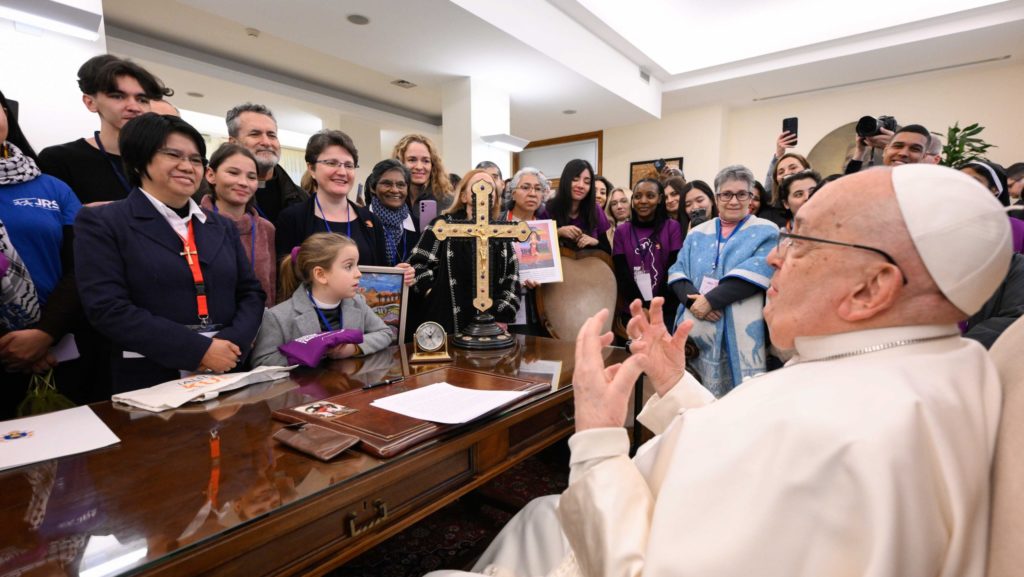The fight against human trafficking requires a global response and coordinated efforts at every level, Pope Francis said.
He urged everyone, "especially representatives of governments and organizations that share this commitment, to join us, animated by prayer, to promote initiatives in defense of human dignity, for the elimination of human trafficking in all its forms and for the promotion of peace in the world."
His appeal was part of a message released Feb. 7 for the International Day of Prayer and Awareness against Human Trafficking, observed Feb. 8, the feast of St. Josephine Bakhita. The saint was kidnapped by slave traders in Sudan in the late 1870s and sold into slavery before she eventually secured her freedom and became a religious sister in Italy.
Trafficking is a complex problem that is "fuelled by wars, conflicts, famine and the consequences of climate change," the pope wrote. "It therefore requires global responses and a common effort, at all levels, to tackle it."
"Together -- trusting in the intercession of St. Bakhita -- we can make a great effort and create the conditions for trafficking and exploitation to be banned and for respect for fundamental human rights to prevail, in fraternal recognition of common humanity," he wrote.
Highlighting the Holy Year theme of hope, the pope acknowledged the difficulty of not losing hope when so many millions of people, especially women and children, young people, migrants and refugees, are trapped in this modern form of slavery.
"Where do we get new impetus to combat the trade in human organs and tissues, the sexual exploitation of children and girls, forced labor, including prostitution, drug and arms trafficking?" he asked.
"With the help of God, we can avoid becoming accustomed to injustice and ward off the temptation to think that certain phenomena cannot be eradicated," he wrote.
"The Spirit of the Risen Lord sustains us in promoting, with courage and effectiveness, targeted initiatives to weaken and oppose the economic and criminal mechanisms that profit from trafficking and exploitation," the pope wrote.
Jesus "teaches us first of all to listen, with closeness and compassion, to the people who have experienced trafficking, to help them get back on their feet and together with them to identify the best ways to free others and to do prevention," he added.
Pope Francis praised the many young people around the world who are fighting against trafficking through a "youth ambassadors project" coordinated by Talitha Kum, an international network of religious working against human trafficking.
The pope also met with some youth ambassadors and members of Talitha Kum when he had an audience in his residence Feb. 7 with organizers of the world day of prayer. Like he did the day before, the pope was holding his meetings at the Domus Sanctae Marthae instead of the Apostolic Palace because of a bout of bronchitis, according to the Vatican.
He thanked the group for coming to Rome for their pilgrimage to the Holy Doors and a week of prayer, training and awareness-raising against human trafficking.
Human trafficking "continually finds new ways to infiltrate our societies," he said, and "we must not remain indifferent."
"We must not tolerate the shameful exploitation of so many of our sisters and brothers. Trafficking in human bodies, the sexual exploitation even of small children and forced labor are a disgrace and a very serious violation of fundamental human rights," he said.
"Like yourselves, we need to unite our forces and our voices, calling upon everyone to accept responsibility for combating this form of crime that profits from the most vulnerable," he said.

